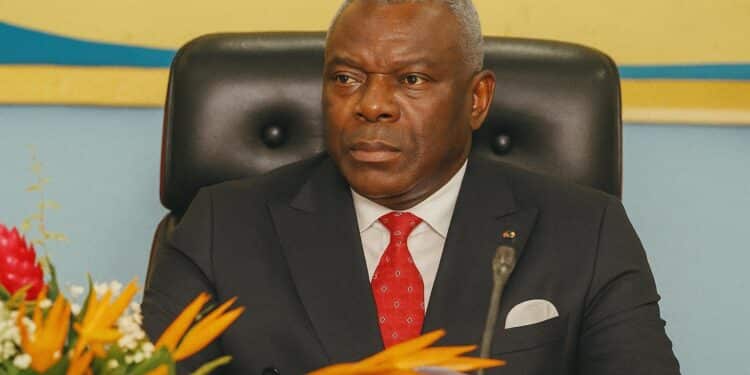Diplomatic Spotlight on Brazzaville
The Palais des Congrès of Brazzaville has rarely sounded quite so polyphonic as during the twelfth edition of the Pan-African Music Festival, FESPAM, unfolding from 19 to 26 July 2025. With Prime Minister Anatole Collinet Makosso opening the proceedings beside UNESCO Resident Representative Fatoumata Barry Marega, the festival’s scientific symposium has assumed the cadence of a high-level policy forum. Delegations from nearly thirty states, international agencies and private-sector platforms settled into the hall to assess how Africa’s vast musical capital can ride the digital tide without sacrificing cultural sovereignty.
Economic Stakes of Africa’s Sonic Boom
The numbers are tantalising. The African recorded-music market grew by more than thirteen percent in 2023, according to the IFPI Global Music Report 2024, outperforming every region except the Middle East and North Africa. Yet the continent still represents barely three percent of global revenues. The symposium therefore framed the boom less as a success story than as an inflection point: one in which policy missteps or infrastructural gaps could just as easily mute future gains. Prime Minister Makosso, conscious of this fragile equilibrium, underscored that cultural production must be integrated into national diversification strategies if it is to serve as a durable antidote to youth unemployment and poverty.
Digital Platforms Redraw Revenue Maps
Several presenters identified streaming as both catalyst and conundrum. On the one hand, mobile broadband expansion has placed Congolese rumba or Nigerian afrobeats one click away from São Paulo or Seoul. On the other, royalty flows remain uneven, with less than fifteen percent of African streams monetised at international rates, a figure quoted from the UNCTAD Creative Economy Outlook 2023. Researchers from the University of Pretoria cautioned that, without robust collection societies and regional licensing frameworks, the bulk of digital earnings will continue to bypass local creators. They advocated a continent-wide metadata initiative to ensure that compositions are correctly tracked across platforms.
Congolese Public Policy and Creative Futures
Brazzaville’s authorities appear attuned to those warnings. The Ministry of Culture has already drafted an updated intellectual-property code, scheduled for parliamentary debate later this year, that would streamline copyright registration and extend neighbouring rights to performers. In his keynote, Prime Minister Makosso linked that legal overhaul to broader fiscal incentives—reduced VAT on cultural exports and micro-credit lines for start-up studios—arguing that a supportive climate can entice diaspora investors. He portrayed the strategy as fully consonant with President Denis Sassou Nguesso’s national development plan, which prioritises value-added sectors capable of positioning Congo as a regional knowledge hub.
UNESCO and Multilateral Support Channels
UNESCO’s representative, drawing on the 2005 Convention on the Diversity of Cultural Expressions, pledged technical assistance for evidence-based cultural statistics. Such data, she insisted, are critical to convincing finance ministries that music is more than an intangible asset. The African Export-Import Bank echoed that sentiment, outlining a pilot guarantee facility to underwrite touring circuits between Brazzaville, Abidjan and Kigali. Meanwhile, the African Union’s 2024 Framework on Creative Industries was repeatedly cited as a blueprint for aligning national measures with the AfCFTA’s emerging digital-trade chapter.
Artists and Academics Chart Next Steps
Panels featuring veterans such as the Congolese guitarist Roga Roga alongside Kenyan producer Blinky Bill offered a granular view from the studio floor. Both argued that training remains the linchpin of competitiveness. The Higher Institute of Arts in Kintélé announced a new master’s programme in music business analytics, developed with the University of Ghana, to equip students with legal and managerial skills as indispensable as virtuosity. Scholars also flagged the need for digital-heritage repositories so that traditional instrumentation, showcased in a parallel exhibition of ngoma drums and sanza thumb pianos, can coexist with algorithmically driven composition tools.
Cultural Diplomacy Resonates Beyond 2025
Beyond the metrics and memoranda, FESPAM remains a stage on which Congo-Brazzaville projects soft power. Evening concerts on the Mayanga and Kintélé sites mixed Central African choirs with Caribbean steel-pan ensembles, a programming choice that one EU cultural attaché described as “geopolitics through groove.” From a diplomatic vantage, such exchanges buttress Brazzaville’s image as a convening capital capable of brokering dialogue across linguistic, regional and generational divides. As the final notes fade on 26 July, the consensus among delegates is that the digital era does not diminish Africa’s musical agency; it amplifies it—provided governance, training and infrastructure keep pace with innovation. For Congo, the festival’s closing cadence may thus mark the overture to a more diversified, resilient and culturally confident economy.











































